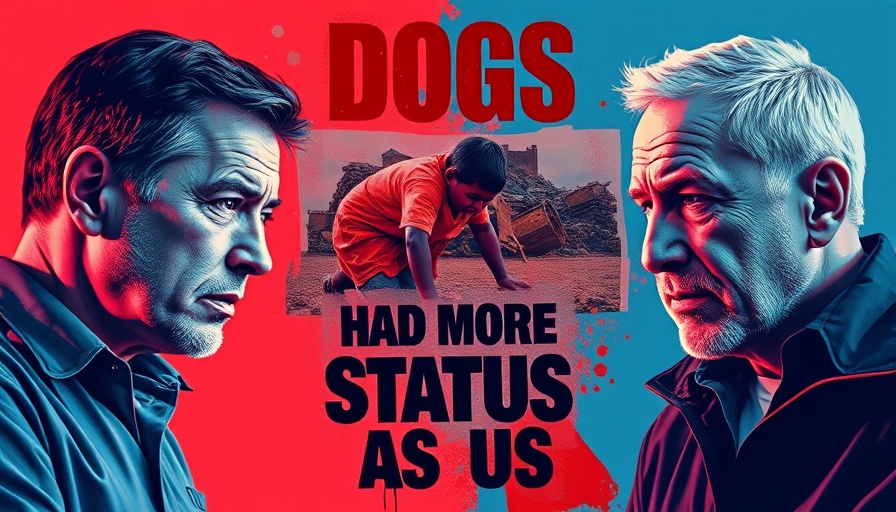
SEO Keyword: A Journey from Untouchability to Faith
In recent years, stories of faith transformations have captured the attention of many, especially when they challenge social norms and prejudices. One such powerful narrative involves the emotional journey of an untouchable Hindu who found Christ, illustrating not only his personal redemption but also a broader comment on the dignity that faith can bring to those who are marginalized.
In 'An Untouchable Hindu Finds Christ (and Dignity!),' we delve into the profound journey of an individual discovering faith amid societal rejection—and its implications for all.
A Telling Transformation of Identity
The term 'untouchable' refers to individuals historically ostracized within India's caste system, condemned to a life of social exclusion. Within that fraught context, the story of an untouchable Hindu man who embraced Christianity speaks volumes not just about personal choice, but also about what it means to find a new identity in faith. He discovered, through Christ, a sense of worth that had been denied to him society.
Social Connections: The Humanization of Marginalized Voices
This man's journey resonates deeply with the struggles faced by many individuals in marginalized communities. His conversion to Christianity signifies breaking away from social constraints and defying the limitations imposed by society. This theme of claiming one’s dignity through faith is not isolated to India; it is recurring across various cultures and societies, reinforcing the notion that human dignity is inherent and should be recognized irrespective of social status.
Parallel Examples: Global Faith Transformations
Several stories from around the world mirror this individual’s experience. For example, the testimonies of former gang members in Central America finding solace in churches showcase how faith can bring radical transformation, encouraging individuals to redefine their identity and purpose. Just like the untouchable Hindu, they sought redemption, demonstrating that faith has the power to transcend societal barriers.
Future Predictions and Insights: Evolving Cultural Dynamics
As social movements advocating for equality gain momentum, we are likely to witness more people from marginalized groups embracing faith as a source of empowerment. This cultural shift suggests that faith communities will increasingly attract individuals seeking solace from social stigmas. Promoting understanding and acceptance can lead to a more inclusive society where everyone finds belonging, echoing the core message of many religious teachings.
Counterarguments: Diverse Perspectives on Faith
While the transformation narrative is inspiring, it is essential to acknowledge that faith conversions often spark debates within and outside religious circles. Skeptics may argue that such changes can be superficial or contingent upon the immediate needs of individuals. Addressing these concerns requires engagement and dialogue, allowing for a deeper understanding of faith as a multifaceted experience rather than a simplistic transformation.
Unique Benefits of Understanding This Journey
This man’s story demonstrates essential lessons for audiences, particularly for believers and skeptics alike. Understanding the value of dignity in faith can foster empathy and cultivate conversations around social change. It provides a blueprint for reaching out to those feeling marginalized or lost, showing that faith can serve as a bridge to healing and community.
As we reflect on the life-changing power of faith, let us consider how we too can offer spaces of understanding and love to those battling their own identity crises. Transformative faith stories serve as reminders of our collective responsibility to uplift one another.
Call to Action:Engaging in conversations that explore life changes through faith can be enlightening and transformative. We invite you to seek out discussions within your community or faith groups that focus on stories of redemption, allowing everyone to share their journey. What steps will you take to foster these empowering narratives?
 Add Row
Add Row  Add
Add 








Write A Comment